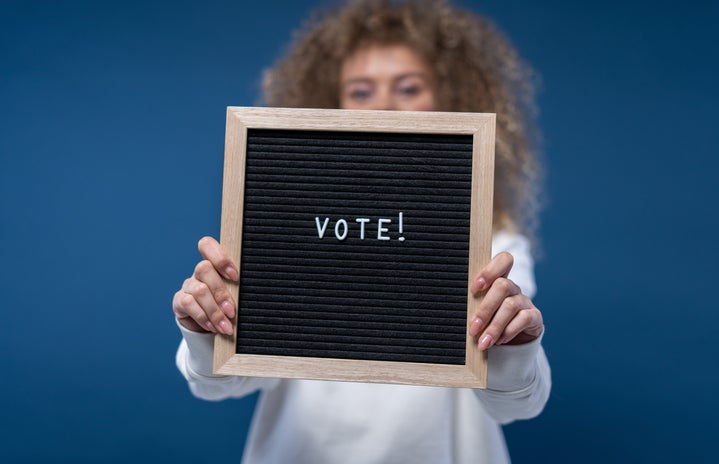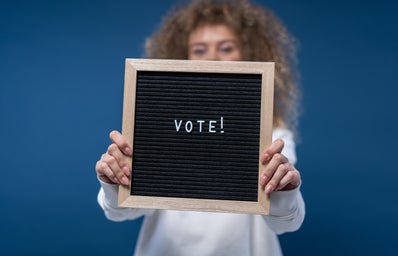It’s been all over your timeline for weeks: “Register to vote!” “Don’t make these mistakes on your ballot!” “Use your voice!” Whether it inspires you or exhausts you, all the political talk can be a little overwhelming — and sometimes, it’s easy to forget why it’s important to vote in the first place. Here’s a little refresher to put your heart back into the ballot.
1. So many powerful women fought to get you that vote. I know, I know, this sounds like another history lesson and, if we’re honest, a bit cliche. But it’s hard to see where we are without remembering how we got here. From Elizabeth Cady Stanton (who helped lead the first women’s-rights convention) to Ida B. Wells (journalist, activist, and abolitionist), countless ladies poured their blood, sweat, and tears into securing our ballots. When you show up on Election Day, you’re becoming a part of that legacy.
2. Tiebreakers are more common than you think. Ever feel like your ballot is just a drop in an ocean of opinions? Sometimes, all it takes is a handful of votes to put a candidate over the edge. In the 2016 election, Clinton won the popular vote by just 2%. On the state level, the race looked even tighter — in New Hampshire, for example, Trump won by 1,437 votes (USA Today). Even though the electoral college plays a big role in who really takes the White House, it’s still important to remember that every last vote is valuble.
3. Don’t like either option? Help create a third party for the next election. According to the Federal Election Commission, “a new party candidate receives partial public funding after the election if he or she receives five percent or more of the vote.” That menas that, while a third-party candidate won’t win this year, they could get the support they need to be taken more seriously in the next election. No matter who you’re rooting for, no vote is a waste — voter diversity makes for a better democracy.
4. Your vote isn’t just for you. You’re speaking on behalf of those who can’t cast their vote, too, from the unregistered to the ineligible. When you fill out that ballot, you’re taking on the role of a representative for all marginalized communities — so it’s important to remember that even if you can’t relate to every talking point in all those debates, there’s someone out there who does. Especially for us college students, it’s pretty easy to remember a time when we couldn’t vote and dreamed someone would slip us a ballot on the down-low — now that you’re eligible for the election, keep the generation behind you in mind, too!
5. Not voting is still a vote. In the words of American author David Foster Wallace, “In reality, there is no such thing as not voting… you either vote by voting, or you vote by staying home and tacitly doubling the value of [a] Diehard’s vote.” In this world of alternative facts and arguments on Twitter, it’s way too easy to polarize politics. At the end of the day, you’re more than your party’s viewpoints, and your ability to vote as a human being instead of a headline is exactly what our government needs. Your voice matters, and when you vote, you make sure no one can take that away from you.
Election Day is just around the corner, so make sure you’ve got a game plan. Sitting on the sidelines doesn’t bring real change — so let’s roll up our sleeves and get to work!


